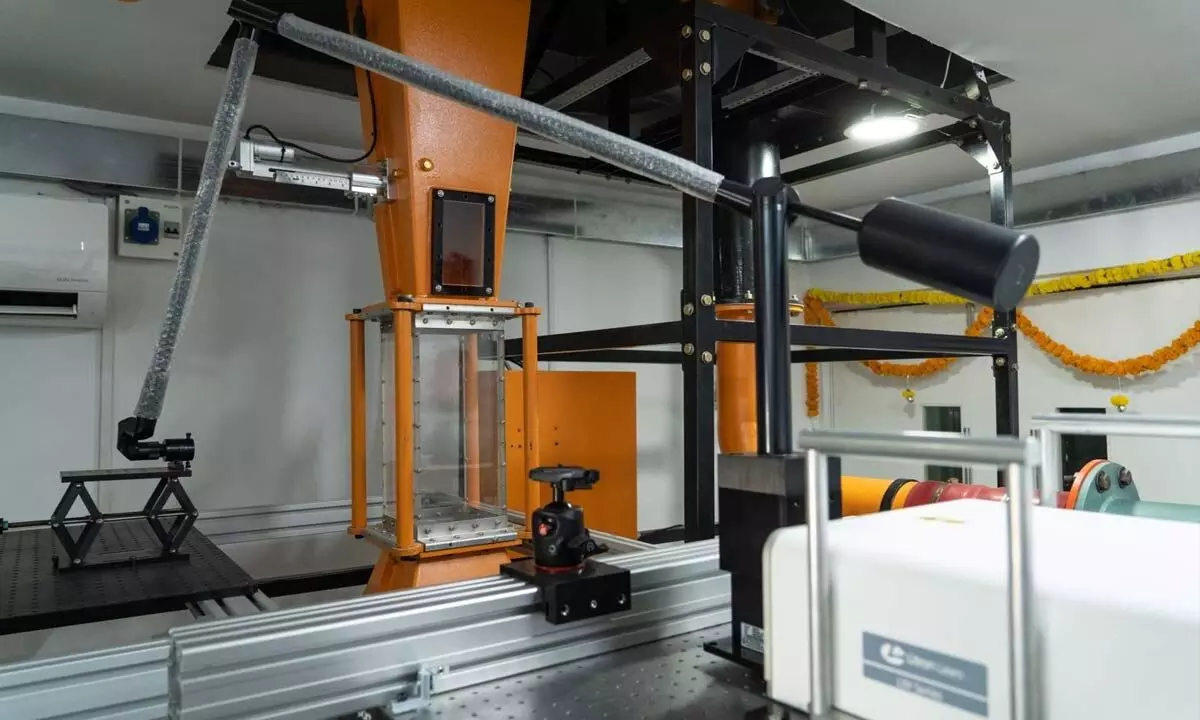IITH's Raindrop Research Facility to help precision prediction of rainfall

IITH’s Raindrop Research Facility to help precision prediction of rainfall
The Indian Institute of Technology Hyderabad (IITH) has established a Raindrop Research Facility (RRF) for simulating atmospheric conditions from the clouds to the ground in order to better predict rainfall.
Hyderabad: The Indian Institute of Technology Hyderabad (IITH) has established a Raindrop Research Facility (RRF) for simulating atmospheric conditions from the clouds to the ground in order to better predict rainfall.
The facility was inaugurated on Friday by V.K. Saraswat, Member, NITI Aayog.
Accurate rainfall prediction is one of the major challenges in environmental research as rainfall is influenced by several factors and atmospheric conditions. The RRF will offer a more accurate understanding of rainfall which will help understand global climate change better.
Explaining the uniqueness of the facility, Kirti Sahu, lead researcher at RRF and professor in the department of chemical engineering at IITH, said, "One of the key limitations in rainfall modelling is the lack of fundamental knowledge of the microphysical processes like coalescence, breakup and phase change, in the actual atmospheric conditions.
"Using the novel experimental facility developed at IITH, the temperature can be varied from -10-degree C to 40-degree C and relative humidity can be maintained from zero to the saturation level.
Thus, we can mimic the dynamic atmospheric conditions from cloud to ground and estimate the shape and size distributions of raindrops at various altitudes.
This information will be used to improve rainfall prediction. This methodology is a far better choice than the other measurement methods in use now."
The machine learning-based digital holography technique developed at IIT Hyderabad has emerged as a powerful tool for capturing three-dimensional information about raindrops with high spatial resolution. This technique will be beneficial for improving rainfall forecasts when combined with the unique experimental facility.
B.S. Murty, Director, IITH, said, "This facility is expected to provide a lot of information on weather forecasting, particularly on rainfall.
It is not only going to be useful for our country, but also to the whole world in predicting rainfall with much better precision."




